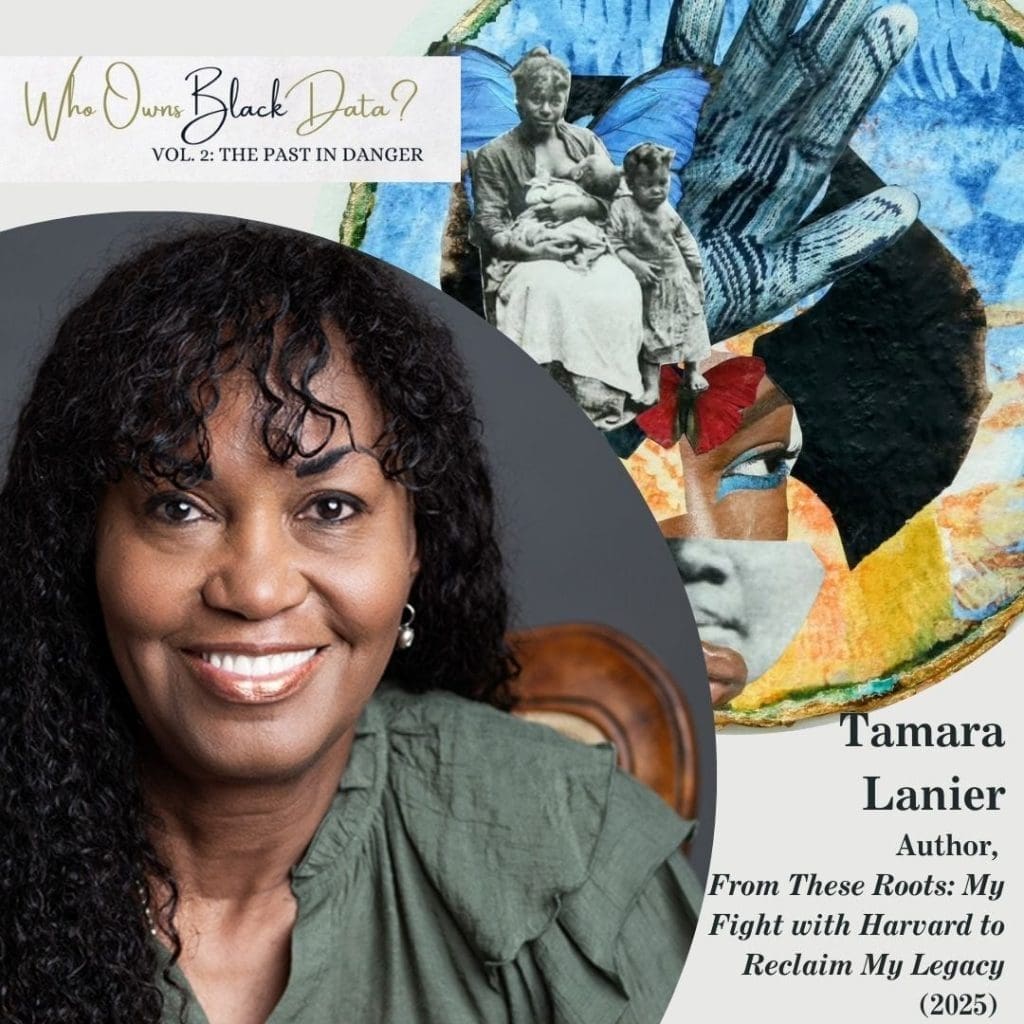
Please join us for the second iteration of the Who Owns Black Data conference series, hosted by the Black Beyond Data Ecosystem on May 14th at Yale University.
We continue our effort to gather a distinguished group of scholars, librarians, activists and archivists to discuss, elucidate, and provide public answers to the question: who owns and controls the Black historical and cultural record?
Now the past is facing new dangers, and the question of ownership and control over the Black historical and cultural record is more urgent than ever. The past is under threat from a variety of forces, including the commodification of data, the privatization of knowledge, and more recently, a concerted effort to erase or rewrite history in ways that serve the interests of those in power. Originally we planned to hold the symposium solely focused on the issue of reparations, but these new dangers prompted us to pivot *in medias res*, without sacrificing the original focus.
The symposium is free and open to the public throughout the day. If you would like to also join us for the reception and keynote dialogue, please register using this link:
Reception and Keynote Dialogue
May 14th Schedule: Public Symposium
Location: Humanities Quadrangle 136 320 York Street
- 9:00am–10:15am: Coffee/ Continental Breakfast. Saying hello to old friends and new.
- 10:15am–10:30am: Welcome remarks
- 10:30am–12:00pm: Archival Reparations
- Kathe Hambrick (Amistad Research Center)
- Dorothy Berry (Smithsonian National Museum of African American History and Culture)
- Connie Bell (Decolonizing the Archive)
- Cheryl Beredo (Yale Beinecke Rare Book and Manuscript Library)
- Moderator: Marlene Daut (Yale Department of French)
- 12pm–1:00pm: Lunch
- 1:00pm–2:15pm: Ancestry, Geneology AND DNA
- Melanie Maldonado (PROPA, Puerto Rico Sites of Slavery)
- Vincent Brown (Harvard University)
- Matthew Smith (UCL Legacies of British Slavery)
- Richard Cellini (Harvard University)
- Moderator: Alexandre White (Johns Hopkins University)
- 2:30pm–3:45pm: Black Kinship and AI
- Kim Gallon (Brown University)
- Christopher Dancy (Penn State University)
- Nadejda Webb (Johns Hopkins University)
- Jonathan Baynes (EINDEVR)
- Moderator: Jessica Marie Johnson (Johns Hopkins University)
- 4pm–4:15: Special Presentation from the Black Bibliography Project
- 4:30pm–5pm: Closing dialogue
- 5pm–6:30pm
Keynote Conversation and Performance
6:30 pm: Location: Humanities Quadrangle 136 320 York Street
Our keynote conversation will feature Tamara Lanier, Yeshimabeit Milner, Alondra Nelson, and Marisa Parham with an introduction by Kim Gallon.
Learn more on the Black Beyond Data website

Tamara K. Lanier is a tireless champion for truth and justice—and a plaintiff in the Lanier v. Harvard reparations lawsuit. She is a descendant of Papa Renty. She is also a twenty-seven-year veteran of the State of Connecticut Judicial Branch, where she retired as a Chief Probation Officer. Lanier has a long and distinguished record of public service and social advocacy. She is a board member of Connecticut’s Racial Profiling Prohibition Project, the past Vice President of the New London NAACP, and an active member of The Saint John’s Christian Church of Groton, Connecticut. Lanier has several passions, one of which is to eradicate racial and ethnic disparities in Connecticut’s Criminal Justice System and to put an end to the ugly practice of racial profiling. She has been a constant voice for change and has traveled the country promoting the need for a national dialogue relative to slavery and its impact on society
Yeshimabeit “Yeshi” Milner is the Founder & CEO of Data for Black Lives. She has worked since she was 17 as a movement builder, technologist and data scientist. She started Data for Black Lives because for too long she straddled the worlds of data and organizing and was determined to break down the silos to harness the power of data to make change in the lives of Black people.
Alondra Nelson is the Harold F. Linder Chair and leads the Science, Technology, and Social Values Lab at the Institute for Advanced Study, where she has served on the faculty since 2019. From 2021 to 2023, she was deputy assistant to President Joe Biden and acting director and principal deputy director for science and society of the White House Office of Science and Technology Policy (OSTP). Nelson was the first person to serve in the latter role, which brought social science expertise explicitly into the work of federal science and technology strategy and policy. She led the development of the White House “Blueprint for an AI Bill of Rights,” a cornerstone of President Biden’s Executive Order on the Safe, Secure, and Trustworthy Development and Use of Artificial Intelligence.
Marisa Parham is Professor of English at the University of Maryland at College Park, where she directs the African American Digital and Experimental Humanities initiative (AADHUM), and is associate director for the Maryland Institute for Technology in the Humanities (MITH). She holds affiliate faculty appointments in African and African American Studies, in the Harriet Tubman Department of Women, Gender, and Sexuality Studies, and in the program in Comparative Literature.
The Who Owns Black Data Series is sponsored by the Mellon Foundation, the Whitney Humanities Center, the Yale Department of African America Studies, the Yale Race & Slavery Working Group, the Black Beyond Data Ecosystem, the Diaspora Solidarities Lab, the Yale Department of Spanish and Portuguese, the Johns Hopkins University Krieger School of Arts and Sciences, and the Caribbean Digital Scholarship Collective.